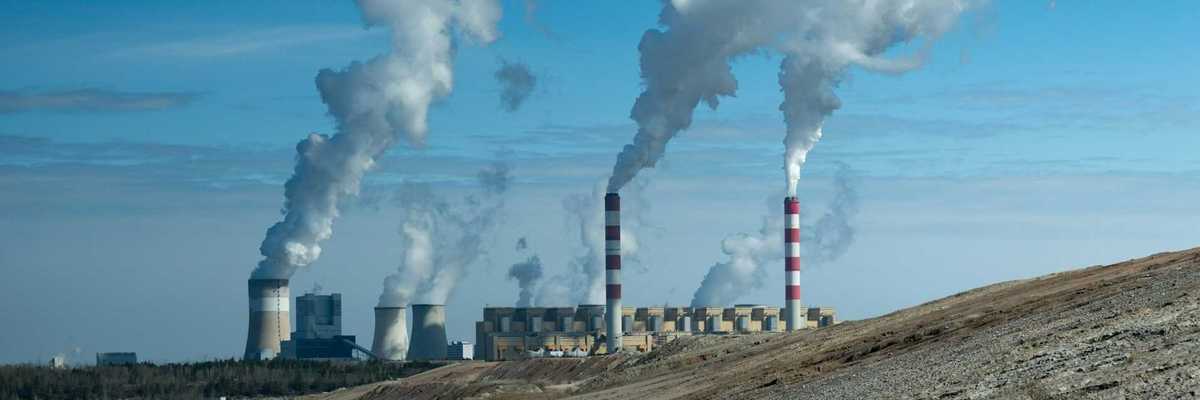greenpeace
LNG exports linked to deaths and rising health costs, report finds
A new report from Greenpeace and Sierra Club reveals that liquefied natural gas exports in the U.S. cause around 60 premature deaths and nearly $1 billion in annual health costs, with numbers expected to rise significantly if planned terminals are built.
In short:
- LNG export facilities currently contribute to 60 premature deaths and $957 million in health costs annually.
- Planned expansions could increase these numbers to 149 deaths and $2.33 billion in costs.
- Minority communities near these facilities are disproportionately affected by the pollution.
Key quote:
“We found those numbers stunning.”
— Andres Chang, senior research specialist at Greenpeace and study co-author
Why this matters:
Expanding LNG exports not only exacerbates climate change but also imposes serious health risks, particularly on marginalized communities. Regulatory actions could mitigate these harms, potentially saving lives and billions in health costs.
Italian Supreme Court to rule on Greenpeace climate lawsuit against Eni
Greenpeace Italy and ReCommon have appealed to Italy’s Supreme Court to expedite their climate lawsuit against oil giant Eni, arguing a dismissal would hinder future climate litigation in the country.
In short:
- The lawsuit alleges Eni has knowingly contributed to global warming since 1970.
- Plaintiffs argue that Italian courts have jurisdiction to decide on climate cases involving national and international emissions.
- A dismissal could prevent future climate lawsuits in Italy, contrasting with recent European Court of Human Rights rulings.
Key quote:
“The climate crisis fueled by fossil fuel companies is here. We have seen it with soaring temperatures, we see it with extreme weather events.”
— Simona Abbate, Greenpeace Italy
Why this matters:
This case challenges the accountability of fossil fuel companies for climate change and the role of national courts in addressing global environmental issues. The outcome could set a precedent for future climate litigation in Italy and beyond.
Italian oil company ENI faces landmark climate lawsuit
In a groundbreaking case, Greenpeace Italy and ReCommon are suing Eni, alleging its contribution to global warming, amidst revelations of the company's ties to climate deniers.
In short:
- Greenpeace Italy and ReCommon's lawsuit against Eni marks Italy's first climate change legal action, focusing on the company's alleged role in exacerbating global warming.
- The case scrutinizes Eni's connections with climate denial, highlighted by their consultants' ties to fossil fuel interests and climate denial groups.
- Central to the lawsuit is whether Eni knowingly contributed to climate change and violated human rights, with implications for the company's future carbon emission reduction responsibilities.
Key quote:
“Can the report of someone who has often personally embraced and disseminated climate change denialist positions be considered reliable in the context of climate litigation?”
— Greenpeace Italy and ReCommon
Why this matters:
This lawsuit may be pivotal in holding corporations accountable for their impact on climate change, potentially setting a precedent for future environmental litigation.
Be sure to read: Opinion: Youth v. Montana — Young adults speak up.
Greenpeace CTO urges tech industry to embrace sustainability
Greenpeace's Chief Technology Officer, Priscilla Chomba-Kinywa, highlights the need for the tech industry to prioritize environmental sustainability.
In short:
- Chomba-Kinywa emphasizes the critical role of technology in addressing the climate crisis, with a stark reminder of the limited time left to make significant changes.
- She advocates for the development of green, ethical tech platforms and praises companies like Hyundai for their environmentally conscious decisions.
- The article underscores the importance of using data effectively, as demonstrated by Greenpeace's efforts to persuade tech giants to adopt renewable energy sources.
Key quote:
"We’re talking about values, ethics, and putting guardrails in place—but we can’t do that without talking about the environment."
— Priscilla Chomba-Kinywa, CTO of Greenpeace
Why this matters:
This article connects technology with environmental sustainability, highlighting the responsibility of tech companies and consumers in shaping a sustainable future, resonating with the current global emphasis on environmental issues.
Young climate activist tells Greenpeace to drop ‘old-fashioned’ anti-nuclear stance
Swedish teenager Ia Anstoot says group’s ‘unscientific’ opposition to EU nuclear power serves fossil fuel interests.
New North Sea oil and gasfields will emit as much carbon as 14m cars, report says
The Guardian environment editor Fiona Harvey reports new oil and gas licences for the North Sea that the UK government has approved in the past two years will produce as much carbon dioxide as the annual emissions of nearly 14m cars, or the entire yearly emissions of Denmark.
In a nutshell:
A new Greenpeace analysis indicates that the carbon dioxide produced from these licenses will increase more than eightfold if potential licenses under consideration are also granted. The group argues that the government's approval of new oil and gasfields without considering the emissions generated from burning fossil fuels undermines the UK's climate goals, and Greenpeace seeks to establish in court that these actions are unlawful.
Key quote:
Philip Evans, a campaigner at Greenpeace, said: “As large parts of Europe, North America and Asia are gripped by a hellish heatwave, we can see that the climate crisis is spiralling out of control, yet the government is insisting on massively expanding oil and gas drilling that will only make it worse.
“As if that wasn’t scandalous enough, when making these decisions ministers deliberately ignore the emissions from burning all these new fossil fuels. That’s grossly irresponsible.”
The big picture:
Carbon dioxide pollution from fossil fuel emissions is a significant driver of climate change, with far-reaching health effects. As carbon dioxide and other greenhouse gases accumulate in the atmosphere, they trap heat, leading to global warming. This warming contributes to more frequent and severe extreme weather events, rising sea levels, and disruptions to ecosystems, impacting human health in various ways. Health risks include heat-related illnesses, respiratory problems due to worsened air quality, waterborne diseases, and food insecurity caused by changing agricultural patterns.
Read more at The Guardian.
Cutting greenhouse gas emissions can result in positive health benefits, writes Brian Bienkowski for EHN. For example, a climate effort in the Northeast U.S. helped the region reduce toxic air pollution and avoid hundreds of asthma and autism cases, preterm births and low birth weights.
Court mulls case against Spain government over climate inaction
Spain's Supreme Court on Tuesday began examining a case filed by Greenpeace and other environmental groups accusing the central government of insufficient action to tackle climate change, the court and NGOs said.









